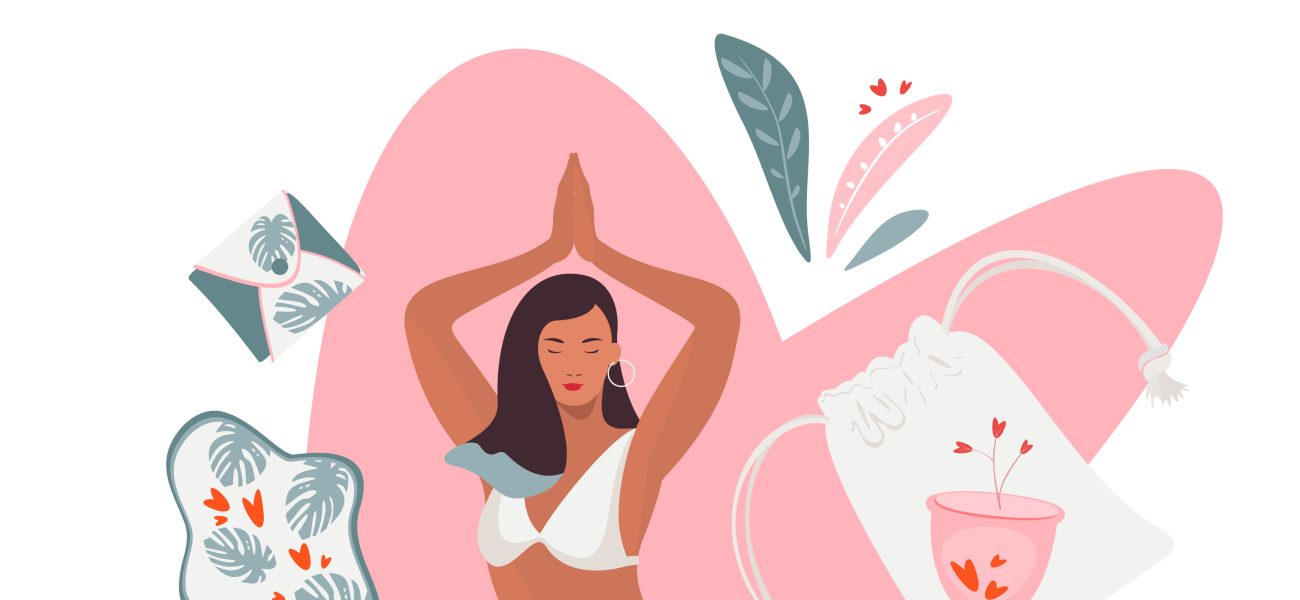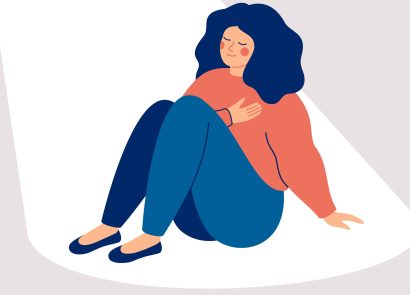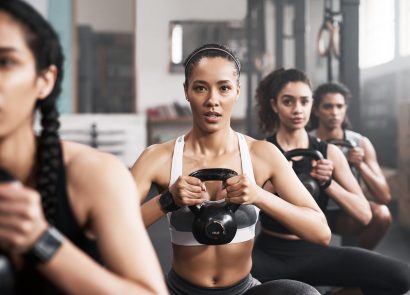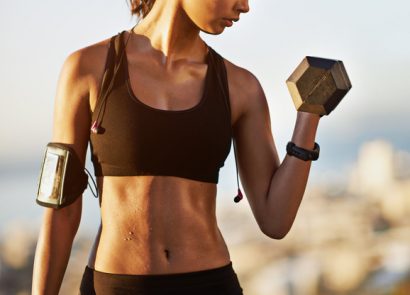How comfortable do you feel discussing your period? For even the keenest over-sharers among us, menstruation is a topic that often remains strictly off-limits.
Even if you’re happy to chat about cramps if your closest pal, there have undoubtedly been times in your life when you’ve felt embarrassed, maybe even ashamed, about having your period around others. Perhaps you always hide a tampon up your sleeve when hot-footing it to the loos at work or you use a hushed voice anytime you need to ask a mate for a pad.
Maybe you’ve felt absolutely mortified upon discovering a period stain on your jeans and find yourself cringing anytime you have to discuss your monthly flow with a friend.
The good news? Times are a-changing and in recent years we’ve seen a (crimson) wave of period positivity.
Numerous sports stars from Scottish middle and long-distance runner Eilish McColgan to tennis player Heather Watson and sprinter Dina Asher-Smith have spoken candidly about how periods affect their sporting performance. It’s a refreshing change to hear women talk so candidly about something we’ve been experiencing since the dawn of time.
Meanwhile, at Wimbledon, bosses have agreed that female players can wear dark-coloured underwear, forgoing the traditional white ensemble to reduce anxiety around menstruation.
You might not be an athlete competing on the world stage, but you’ve likely noticed that your relationship with menstruation has changed recently as well. Not only is it less taboo to talk openly about your period, these days you can find multiple ways to care for yourself during your time of the month too.
Gone are the days of period product ads featuring blue liquid. From femtech apps that help us understand our cycles to eco-friendly period products, like menstrual cups and period pants, period care is no longer one-size-fits-all.
All of these developments are creating a more positive conversation around periods. No longer are they a bodily function shrouded in shame and secrecy, but a normal and natural part of our physiology to be shared, explored, and even celebrated.
Breaking the stigma
One woman leading up that change is Afsaneh Parvizi-Wayne, founder of Freda Health, a company that provides natural and organic period care products.
“Taboo and stigma equal unmet needs, and if you can’t talk about periods, there will always be an invisible barrier to true gender equality and opportunity,” she says.
“The veil of shame and embarrassment around periods stops girls from attending school and participating in sports, and more importantly, often means putting up with heavy and painful periods.”
Parvizi-Wayne believes brands like Freda have dragged periods into the 21st century. Changing the language we use when discussing periods, is one of the first changes she implemented.
“Modern packaging and positive language make a big difference,” she enthuses. “I ditched the words ‘sanitary products’ or ‘feminine hygiene’ as it made periods sound unsanitary and unhygienic. If we can have hair care, dental care, and skin care, we can very well have period care!”
Influencers have played a part in showcasing – and normalising – the realities of periods too. Take Steph Gongora, for example, a yoga instructor who uploaded a video of herself training in white leggings stained with period blood. Her video was a reminder that leaks happen. It’s inconvenient, it’s messy, but it’s not the end of the world.
Even period artistry has emerged as a trend. Jasmine Amelia Carter is a ‘period artist’ who has amassed over 25,000 followers on Instagram by sharing the images she’s painted with her period blood. The comment sections on her profile are filled with people praising her for capturing the beauty of menstruation in a world that often labels periods as dirty and disgusting.
Whether it’s charities working to eradicate period poverty, brands creating sustainable period care products, or period artists changing the narrative around menstruation, Parvizi-Wayne says there are many changemakers to look up to in this space.
“Bloody Good Period, the charity we partner with, has done the most amazing job highlighting period poverty and keeping it on everyone’s radar,” she says.
“Meanwhile, Bloomsbury Football Club, a grassroots sports charity, were the first to give period kits to every one of their female players. Their coaches carry pads and tampons with them at all times and they run educational workshops for players, parents, and their coaches.”
Playing your part in period positivity
There’s no shortage of changemakers in the menstrual movement, but to continue to affect change, the movement needs more and more recruits. So what can you do to further the conversation and make periods less of a taboo topic?
Parvizi-Wayne believes forgoing the aforementioned habits – hiding a tampon up your sleeve and asking for period products in hushed tones – is a great place to start.
Embracing these small changes sends a powerful message to yourself and others: periods are not something that must remain hidden. It sets the tone for how younger generations will think about periods too.
Likewise, speaking plainly about your period can lessen the stigma. Try replacing those familiar idioms – Aunty Flo, that time of the month, riding the crimson wave et al – with phrases that tell it like it is. No need to dress it up; you can simply say, ‘I’m on my period’.
If you’re feeling brave, Parvizi-Wayne advises encouraging the institutions around you – be it your place of work, the gym, or your child’s school – to provide free period products.
“Every institution has an inclusion policy and providing free period products is the first practical step towards inclusivity,” she points out. “Having period products on display in bathrooms can have a really positive impact.”
When we collectively commit to changing the way we view and discuss periods, it can have a far-reaching impact. In particular, Parvizi-Wayne says it empowers women to ask for better health care and can act as a catalyst for better research into reproductive health.
While Parvizi-Wayne believes there’s still a lot of work to be done, she says much progress has already been made.
“The effect can be seen in the younger generation who are starting to feel more comfortable with their own bodies,” she notes.
Next time you need to nip to the loos at work during your period with a pad, tampon, or menstrual cup in hand, you can do so with pride.



















